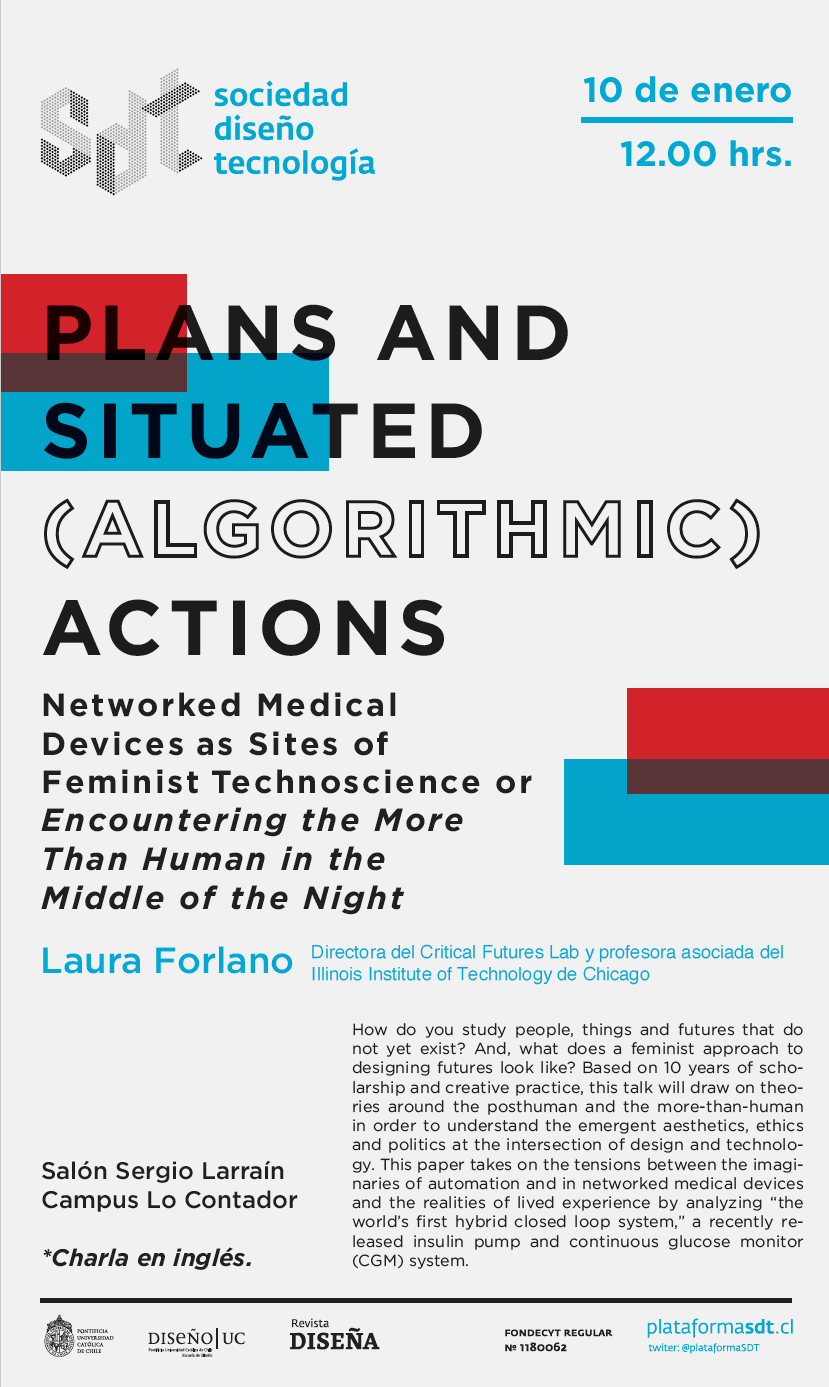La quinta sesión del seminario se realizará el próximo jueves 10 de enero a las 12:00 en el Salón Sergio Larraín del campus Lo Contador PUC, Santiago. Contaremos con la presentación de Laura Forlano, directora del Critical Futures Lab y profesora asociada del Instituto de Diseño del Illinois Institute of Technology. En la presentación Laura abordará sobre sus más recientes trabajos que se basan en una concepción posthumanista o más-que-humana y que apuntan hacia una aproximación feminista del diseño y la tecnología. Agradecemos difundir la información a todas las personas que les pueda interesar.
Abstract: How do you study people, things and futures that do not yet exist? And, what does a feminist approach to designing futures look like? Based on 10 years of scholarship and creative practice, this talk will draw on theories around the posthuman and the more-than-human in order to understand the emergent aesthetics, ethics and politics at the intersection of design and technology. This paper takes on the tensions between the imaginaries of automation and in networked medical devices and the realities of lived experience by analyzing “the world’s first hybrid closed loop system,” a recently released insulin pump and continuous glucose monitor (CGM) system. In particular, through autoethnographic accounts of living with these devices, I develop a multi-scalar theory of broken body thinking that collapses the world onto the body, which suggested a different set of concerns, relations, contingencies and processes within discussions of decay, maintenance, repair and care. By drawing on the posthuman and the more-than-human, we can engage more deeply with the connections between our own experiences and those of technologies and other beings. Specifically, as hybrids, these concepts resist binaries and dualisms, instead allowing use to explore multiple, relational futures. This talk will draw on examples from design research that demonstrate a critical, participatory and speculative engagement with these futures.
